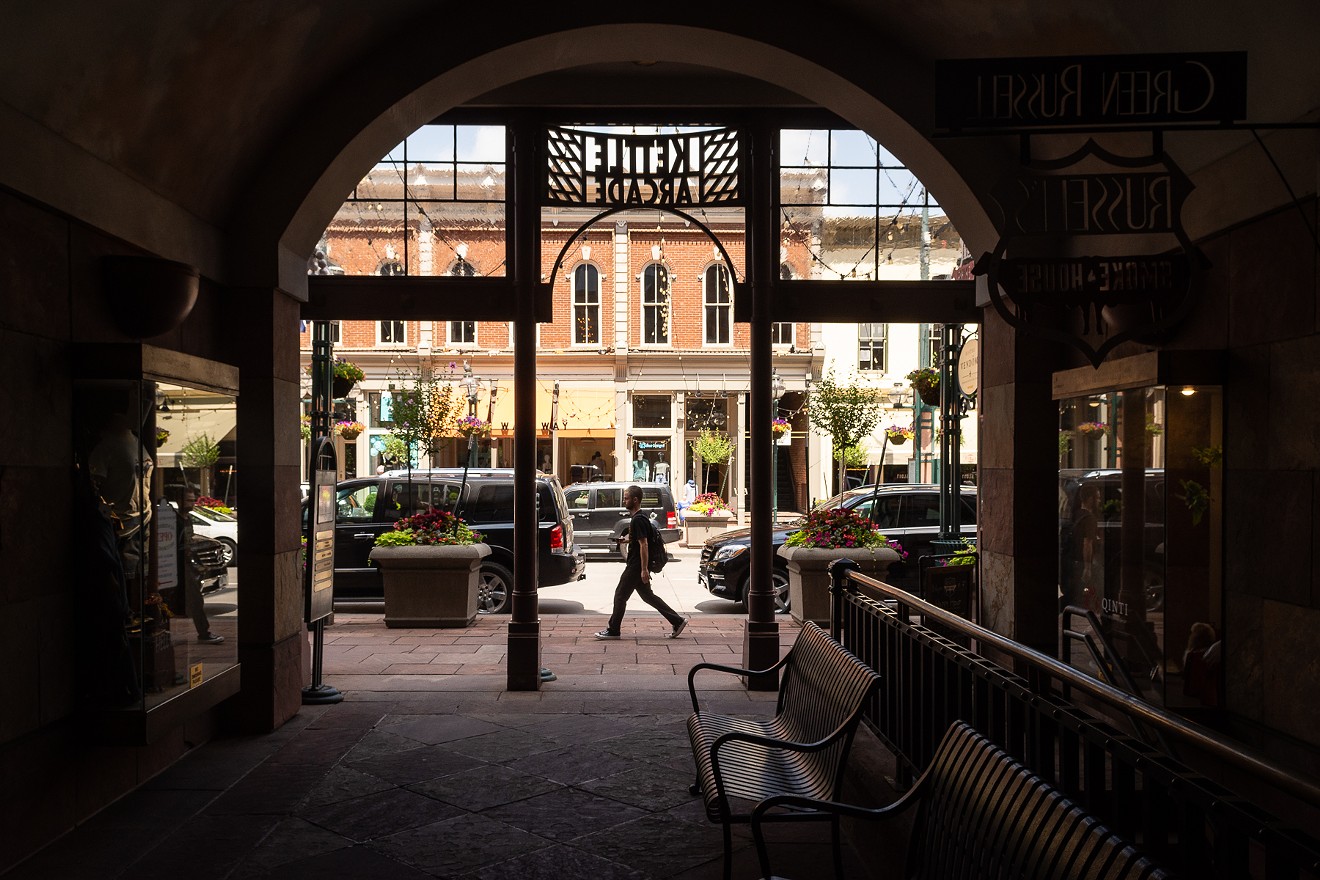Some opponents say that Amendment 74, which would alter the state constitution so that property owners could be compensated for any reduction in property value caused by state laws or regulations, could bankrupt the state with endless litigation if passed. It could also wipe out zoning codes and dissuade local governments from regulating at all if the threat of lawsuits is always looming. That's why Colorado Preservation Inc. has come out against the measure and is letting all of its members know what's at stake.
Designated historic districts often come with special protections when it comes to zoning, height restrictions and demolition, says Jennifer Orrigo Charles, executive director of Colorado Preservation. It's not really clear what would happen to those designations if Amendment 74 passes and a developer or property owner decided the historic designation was hurting their property value.
"As Denver becomes so popular, there's so much pressure put on these historic districts," Orrigo Charles explains. "A lot of times the historic districts have limits on height, so the concern is, if suddenly those height restrictions could be lifted, what does that mean for those communities? Will high-rises go in and tower over important historic districts?"
Some research shows that historic designations typically have a positive impact on property values, and that historic properties appreciate faster. But that wouldn't stop property owners from making claims, Orrigo Charles says. Even if a potential lawsuit were thrown out, it would be at a cost to taxpayers."Nothing in it requires courts to require compensation for those claims being made."
tweet this
"If somebody feels like their neighbor placing their property on the National Register of Historic Places would jeopardize their property value, there's nothing to stop them from bringing that lawsuit forward," Orrigo Charles argues.
The measure could also have a chilling effect on new local historic districts being created, Orriga Charles fears. "The heart of it is, just knowing that this potential for lawsuits is out there, how is that going to affect state and local governments [moving] forward with any regulations that have public benefit?" she says.
That potential chill is one consequence cited by many opponents of the measure, who include Governor John Hickenlooper; Colorado Springs Mayor John Suthers, a Republican; and the Colorado Municipal League.
Shawn Martini, vice president of advocacy at the Colorado Farm Bureau, which is sponsoring Amendment 74, says frivolous claims like the ones Orrigo Charles fears would simply be thrown out.
"I don't think it's much different than all the other doom and gloom being proposed" by opponents, Martini says. Courts have limited similar claims in the past, and Amendment 74 wouldn't force the courts to take them up if it passes, he explains. "Nothing in it requires courts to require compensation for those claims being made," he says.
If the amendment passes (thanks to Amendment 71, more than 55 percent of voters must approve it before that happens), it won't be easy to undo. The amendment would have to be overturned via another election. That was the case in Oregon, where voters passed an Amendment 74-like measure, and then eventually voted to repeal it.
It's also worth pointing out that the political committee putting Amendment 74 forward, the Committee for Colorado's Shared Heritage, has received more than $4 million from Protect Colorado, according to campaign finance documents. The latter is the political committee created to fight Proposition 112, which would require 2,500-foot setbacks for new oil and gas wells near homes, schools and water sources. Protect Colorado has been largely funded by oil and gas companies.












